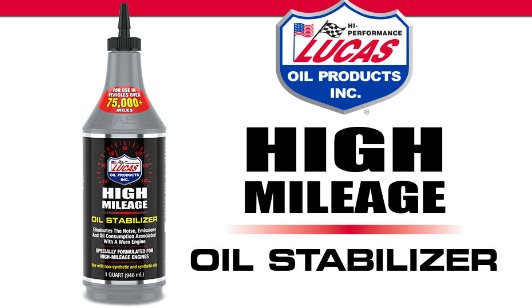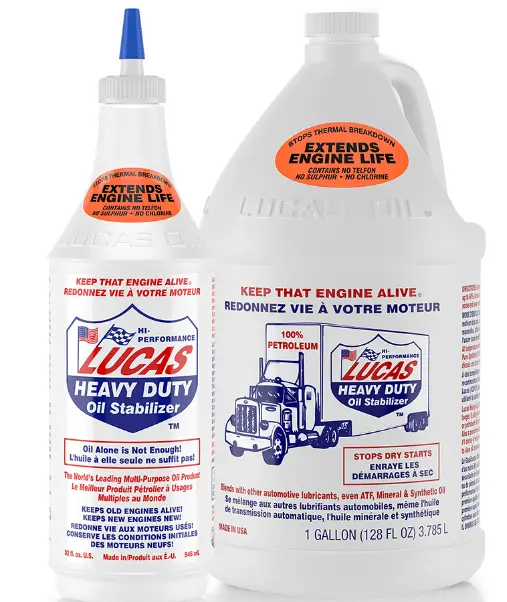The manufacturer of Lucas Oil Stabilizer claims that their product can improve engine performance and reduce fuel consumption, but there is no scientific evidence to support these statements. Instead, the website contains a series of testimonies from customers who have reported positive results. Despite this lack of scientific proof, people still purchase the product based on what they read from others' experiences. It is important to note that gasoline containing more than 10% ethanol should never be used in an engine as it could result in voiding the warranty. The potential benefits and risks of using the additive should be thoroughly researched before making any decisions.
Is Lucas Fuel Stabilizer Effective?
Lucas Fuel Stabilizer has been met with mixed reviews. Many customers have reported that the product does not live up to its claims and causes more harm than good. Studies indicate that consumers often experience decreased fuel economy and engine difficulties after using the additive, attributed to its alcohol foundation. These reports are concerning and should be considered before using this fuel stabilizer.
Does Lucas Oil Stabilizer Work?

The oil stabilizer product offered by the firm has been hailed for its diversity, as it is suitable for use in a wide variety of machines. It can be used in lawnmowers, tractors, cars, and even more specific applications such as men's body wash or four-step hair cleansing products. Despite this versatility, there are questions about how well the product performs each task it is meant to do. Some concerns using the same weight or type of oil across multiple products may not be ideal. As such, consumers should assess if this product fits their needs before purchasing.
Lucas Oil Stabilizer Problems
While the debate rages on regarding this particular topic, insufficient evidence exists to reach definitive conclusions. Numerous anecdotes exist of people claiming to benefit from it, with others having none. With the current data points available, it would not be easy to gauge its efficacy accurately. From a scientific standpoint, risks and potential benefits appear minimal.
- Lucas Oil Stabilizer has been reported to lead to a drop in fuel efficiency, increased engine wear, and more difficulty starting an engine on cold days.
- Drivers should be aware that using this product could void warranties provided by car manufacturers.
- Synthetic oils may deteriorate faster when used with the oil stabilizer than without it,.
- In addition, no major oil brand manufacturer currently produces its version of an oil stabilizer for sale today.
- Vehicle owners should also note that some automakers do not approve of Lucas Oil Stabilizer in their vehicles due to potential risks associated with its use, such as premature degradation or other issues related to performance or safety concerns.
- Drivers need to understand the potential consequences they may face if deciding to incorporate this product into their vehicle's maintenance schedule, including but not limited to decreased MPG, higher levels of engine wear, and frequent need for oil changes.
- Before making any decisions regarding the use of Lucas Oil Stabilizer, drivers must obtain approval from their automaker so as not to risk warranty coverage being voided due to complications arising from improper use.
- Those considering adding this additive must consider all aspects based on each person’s driving and vehicle needs.
Some have made reports of the benefits of using a particular product. Such reported benefits include improved efficiency, increased cost-effectiveness, and enhanced user experience. It is expected that further research into the effects of this product could provide more information on its potential advantages.
- Higher MPG
- Longer engine life
- Delay of complete engine failure
- Temporary oil leak repair
How Does Lucas Oil Stabilizer Work?
Lucas Oil offers a product that combines synthetic and traditional oil to improve engines. However, the website does not provide much technical information or evidence to support their claims. The best description is "Lubricating oils, petroleum, c>25, hydrotreated brilliant stock-based".
The Real Science Behind It
The Lucas Oil Stabilizer is a thick substance that has a viscosity of 110 when heated to 212F (100C). This is significantly higher than the viscosity of 5W-40, which is 14-15 at the same temperature. Adding just 10% of this oil to existing engine oil would increase its density to 20 or more.
This heavy oil takes longer to reach all components in an engine, potentially leading to accelerated wear and tear. However, it can also temporarily relieve leaks and extend engine life until necessary repairs are made. The lubricating properties work similarly with other engine oils but offer an added layer of protection between metal parts for maximum efficiency.
How Does Lucas Oil Stabilizer Work In Practice?
Lucas Oil Optimizer is a product that claims to stabilize your car's oil and improve its efficiency. However, due to the lack of research and effective testing done by Lucas Oil, there has been skepticism in trusting this product. Reports have come in from some customers claiming increased gas mileage and longer engine life. Still, other customers have expressed concern about sludge build-up in their engines and potential early engine wear.
In comparison, companies such as Boeing conduct extensive tests for every component of an aircraft, like the 737, before it is released into the public market. Through thousands of hours spent in wind tunnels, they can conclude what works best based on concrete evidence gathered during these tests, unlike Lucas Oil Stabilizer, which does not share any data or findings with the public.
- Increase oil life by at least 50% longer
- Reduces oil consumption
- Eliminates dry starts
- Raises oil pressure
- Increase power and miles per gallon
Conclusion
This article overviews Lucas Oil, its advantages and disadvantages, and how it may help address engine issues. It is intended to act as a resource for individuals considering whether or not to use the product to make an informed decision.
Was this page helpful?


More important content about Tips and Advice
Porsche Cayenne Years To Avoid
Subaru Legacy Years To Avoid - 5 Worst Years
Pt Cruiser Years To Avoid
Use 5w30 instead of 0w20 - Advantages and Disadvantages
Tractor Dashboard Symbols And Meanings
Tips and Advice
Subaru Legacy Years To Avoid - 5 Worst Years
Pt Cruiser Years To Avoid
Use 5w30 instead of 0w20 - Advantages and Disadvantages
Tractor Dashboard Symbols And Meanings
Suzuki Sx4 Years To Avoid - 5 Worst Years
Cummins ISX Years To Avoid and Why